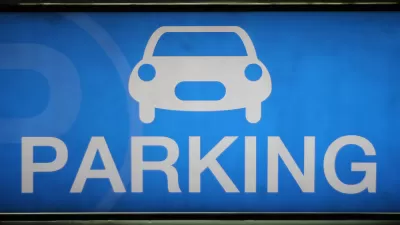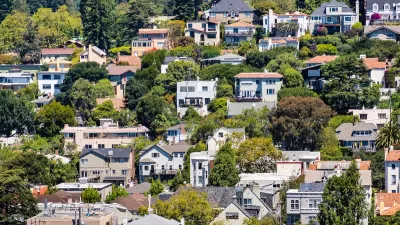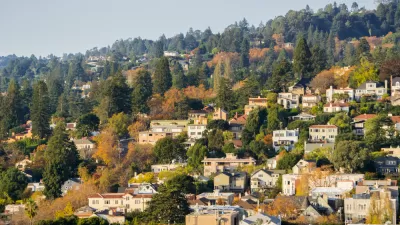A three-year pilot program of market-pricing for parking in the university town of Berkeley, California is already revealing surprising realities about parking demand in the city.
A post on the Systematic Failure blog details the result of a test of market pricing for parking in Berkeley—where the perception of parking shortages does not match the data about parking availability even in peak hours.
Here's how the post describes the goBerkeley experiment:
"The city received a 3-year Federal grant to test that hypothesis. The transportation department analyzed parking occupancy rates in three neighborhoods, continually adjusting parking hours and pricing based on demand. Price and time limits were set with a goal of always having 65-85% occupancy on each block. Where parking exceeded the 85% threshold, prices went up and time limits went down. Where parking occupancy dropped below the 65%, prices were reduced and time limits increased. Clear signage was installed to inform drivers their pricing options."
The articles shares infographics reporting the surprising results of a survey presented to the Berkeley City Council in December [pdf], including low demand for parking within two blocks of the University of California campus.
The article also notes the improvements left to be implemented for the goBerkeley program, including the automation of real-time data and payment processes.
FULL STORY: Some Surprising Results of a Market-Pricing Parking Experiment

Alabama: Trump Terminates Settlements for Black Communities Harmed By Raw Sewage
Trump deemed the landmark civil rights agreement “illegal DEI and environmental justice policy.”

Study: Maui’s Plan to Convert Vacation Rentals to Long-Term Housing Could Cause Nearly $1 Billion Economic Loss
The plan would reduce visitor accommodation by 25% resulting in 1,900 jobs lost.

Planetizen Federal Action Tracker
A weekly monitor of how Trump’s orders and actions are impacting planners and planning in America.

DC Extends Application Window for Outdoor Dining Permits
District restaurants will have until the end of November to apply, but businesses with permits in rush hour parking lanes must end operations on July 31.

Wind Energy on the Rise Despite Federal Policy Reversal
The Trump administration is revoking federal support for renewable energy, but demand for new projects continues unabated.

Passengers Flock to Caltrain After Electrification
The new electric trains are running faster and more reliably, leading to strong ridership growth on the Bay Area rail system.
Urban Design for Planners 1: Software Tools
This six-course series explores essential urban design concepts using open source software and equips planners with the tools they need to participate fully in the urban design process.
Planning for Universal Design
Learn the tools for implementing Universal Design in planning regulations.
Caltrans
Smith Gee Studio
Institute for Housing and Urban Development Studies (IHS)
City of Grandview
Harvard GSD Executive Education
Toledo-Lucas County Plan Commissions
Salt Lake City
NYU Wagner Graduate School of Public Service





























